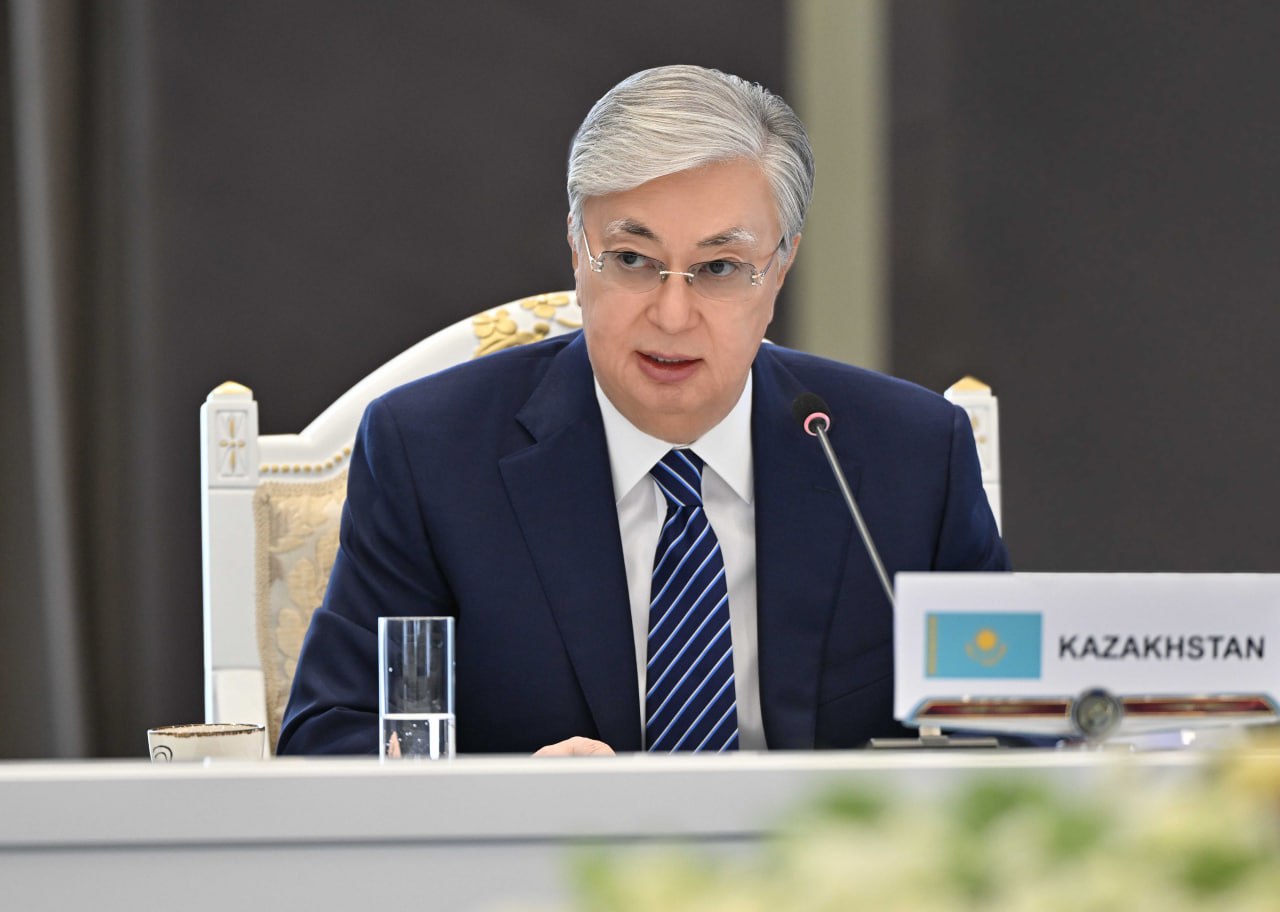Kazakhstan may increase oil supplies to Germany via the Druzhba pipeline, President Kassym-Jomart Tokayev said during the EU-Central Asia summit being held in Cholpon-Ata in Kyrgyzstan.
Druzhba is one of the world’s longest oil pipelines, stretching from Russia to various destinations in eastern and central Europe.
“Kazakhstan has begun supplying oil to Germany through the Druzhba pipeline,” Tokayev stated on Friday. “Since the beginning of this year, deliveries for 90,000 tons have already been implemented. There is a potential to bring this figure to 1.2 million tons per year with the possibility of increasing it in the future.”
Oil sourced from the Karachaganak field in western Kazakhstan travels through Russia’s Druzhba pipeline to Poland via Belarus, before reaching Germany. The ultimate delivery point is the oil refinery in Schwedt, Brandenburg.
In February, Kazakhstan successfully shipped 20,000 tons of crude to Germany via Druzhba, marking the first-ever such shipment, which replaced Russian supplies to German refineries.
KazTransOil, the operator of the main oil pipeline in Kazakhstan, earlier revealed that oil exports to Germany in May were likely to reach 100,000 tons – up from the 90,000 tons of Kazakh crude oil delivered to Germany via the Druzhba pipeline during the period between February and April.
In December 2022, Russian oil transportation company Transneft reported that it had received an application from KazTransOil requesting additional capacities in the Druzhba pipeline for transit to Germany, amounting to 1.2 million tons for 2023.
In September 2022, the German government announced its intention to negotiate with Kazakhstan for the purchase of oil, transported through the Druzhba pipeline, to meet additional demands at the refinery in Schwedt and replace Russian oil supplies.
Kazakhstan uses the Druzhba pipeline for transit, sending approximately 10 million tons of oil per year to the port in Ust-Luga.
Kazakhstan is the ninth-largest crude oil exporter globally. The country holds three percent of the world’s total oil reserves and it is the third-largest oil producer in the Caspian region, after Russia and Iran.
With over 70 percent of its oil exports going to the European Union (EU), Kazakhstan is already the third-largest non-OPEC supplier of the bloc, which is considered one of the most prolific markets for energy exporters, given its lack of domestic resources.
Meanwhile, the EU expects the volumes of Kazakh oil to increase amid a partial embargo and price cap on Russian oil.
After Russia’s invasion of Ukraine in February 2022, European countries have been focusing on how to wean themselves off Russian oil and gas and prevent a wider energy crisis. As part of the sixth and toughest sanctions package against Moscow, EU leaders agreed to embargo two-thirds of Russian oil supplies to the bloc.
EU countries stopped imports of Russian oil delivered by sea in late 2022, with a ban on refined oil products from February 2023. The US has also completely stopped importing Russian oil. European leaders have focused on limiting their imports over the next several years through conservation, finding alternative sources, and switching to wind and solar power as fast as possible.
Energy-rich Kazakhstan annually supplies 67 million tons of oil to Europe through Russia. For 20 years, Kazakh oil was shipped through the Caspian Pipeline Consortium (CPC) channel to Russia’s Novorossiysk, which provides access to the global market. Kazakhstan exports more than two-thirds of its oil via the CPC pipeline.







 Azerbaijan has been recognized as one of the safest countries in the world, ranking 90th among 163 countries on the Global Terrorism Index 2025 (GTI).
Azerbaijan has been recognized as one of the safest countries in the world, ranking 90th among 163 countries on the Global Terrorism Index 2025 (GTI).
 The Azerbaijani Defense Ministry has reported ongoing shelling of its army positions by Armenian forces since last week.
The Azerbaijani Defense Ministry has reported ongoing shelling of its army positions by Armenian forces since last week.
 Iranian Foreign Minister Abbas Araghchi has urged the International Atomic Energy Agency (IAEA) to take a "transparent position" regarding potentia...
Iranian Foreign Minister Abbas Araghchi has urged the International Atomic Energy Agency (IAEA) to take a "transparent position" regarding potentia...



